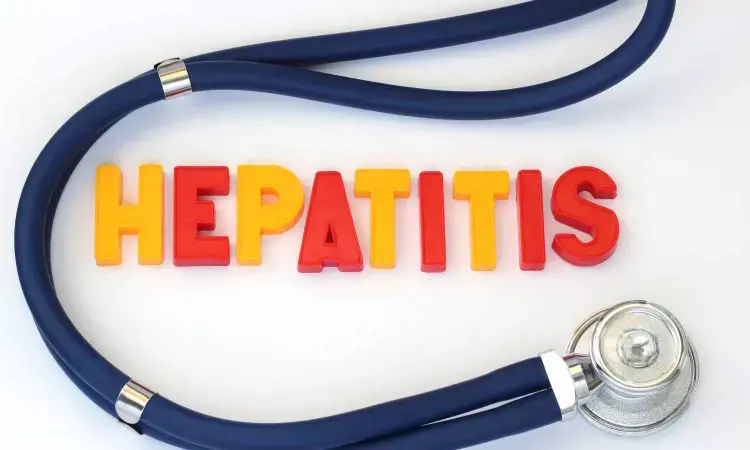- Home
- Medical news & Guidelines
- Anesthesiology
- Cardiology and CTVS
- Critical Care
- Dentistry
- Dermatology
- Diabetes and Endocrinology
- ENT
- Gastroenterology
- Medicine
- Nephrology
- Neurology
- Obstretics-Gynaecology
- Oncology
- Ophthalmology
- Orthopaedics
- Pediatrics-Neonatology
- Psychiatry
- Pulmonology
- Radiology
- Surgery
- Urology
- Laboratory Medicine
- Diet
- Nursing
- Paramedical
- Physiotherapy
- Health news
- Fact Check
- Bone Health Fact Check
- Brain Health Fact Check
- Cancer Related Fact Check
- Child Care Fact Check
- Dental and oral health fact check
- Diabetes and metabolic health fact check
- Diet and Nutrition Fact Check
- Eye and ENT Care Fact Check
- Fitness fact check
- Gut health fact check
- Heart health fact check
- Kidney health fact check
- Medical education fact check
- Men's health fact check
- Respiratory fact check
- Skin and hair care fact check
- Vaccine and Immunization fact check
- Women's health fact check
- AYUSH
- State News
- Andaman and Nicobar Islands
- Andhra Pradesh
- Arunachal Pradesh
- Assam
- Bihar
- Chandigarh
- Chattisgarh
- Dadra and Nagar Haveli
- Daman and Diu
- Delhi
- Goa
- Gujarat
- Haryana
- Himachal Pradesh
- Jammu & Kashmir
- Jharkhand
- Karnataka
- Kerala
- Ladakh
- Lakshadweep
- Madhya Pradesh
- Maharashtra
- Manipur
- Meghalaya
- Mizoram
- Nagaland
- Odisha
- Puducherry
- Punjab
- Rajasthan
- Sikkim
- Tamil Nadu
- Telangana
- Tripura
- Uttar Pradesh
- Uttrakhand
- West Bengal
- Medical Education
- Industry
Early Tenofovir Treatment and Vaccination Effective in Preventing Hepatitis B Transmission During Pregnancy: JAMA

China: A recent randomized clinical trial published in JAMA investigated the effectiveness of Tenofovir (TDF) in preventing mother-to-child transmission (MTCT) of Hepatitis B virus (HBV) during pregnancy. It found that in pregnant women with high HBV viremia, starting TDF treatment at 16 weeks of gestation, along with infant HBV vaccination, was as effective as the standard approach, which involves starting TDF at 28 weeks combined with hepatitis B immune globulin (HBIG) and infant HBV vaccination.
"These findings support initiating TDF treatment at 16 weeks of gestation, along with administering the HBV vaccine to infants, as an effective strategy to prevent mother-to-child transmission of HBV, particularly in regions where HBIG is unavailable," the researchers wrote.
The standard approach to preventing mother-to-child transmission of hepatitis B virus in highly viremic mothers includes maternal antiviral prophylaxis starting at week 28 of gestation, combined with an HBV vaccine series and HBIG for newborns. However, in resource-limited areas where HBIG is unavailable, Calvin Q. Pan, Guangzhou Medical University, Guangzhou, China, and colleagues sought to determine if initiating tenofovir disoproxil fumarate (TDF) at gestational week 16, along with HBV vaccinations for infants, is as effective as the standard care approach in preventing MTCT in mothers with high HBV viremia.
For this purpose, the researchers conducted an unblinded, 2-group randomized noninferiority trial at seven tertiary hospitals in China. Two hundred eighty pregnant individuals with HBV DNA levels exceeding 200,000 IU/mL were enrolled between June 2018 and February 2021. Participants were randomly assigned to receive either TDF starting at gestational week 16 with infant HBV vaccinations or TDF starting at week 28 with HBV vaccinations and HBIG for infants.
The primary outcome was the MTCT rate at 28 weeks, with noninferiority determined by a maximum absolute difference of 3%.
The study led to the following findings:
- A total of 280 pregnant individuals enrolled in the trial, with 95% completing the study.
- Among live-born infants, the MTCT rate was 0.76% (1/131) in the experimental group and 0% (0/142) in the standard care group using the last observation carried forward.
- In the per-protocol analysis, the MTCT rate was 0% in both groups (0/124 in the experimental group and 0/141 in the standard care group).
- Between-group differences met the criterion for noninferiority (0.76% and 0% with respective upper 90% CI limits of 1.74% and 1.43%).
- Congenital defects and malformations rates were lower in the experimental group (2.3%) than the standard care group (6.3%), with a difference of 4%.
"For pregnant women with HBV and high viremia levels, starting TDF at gestational week 16 alongside HBV vaccination for infants proved to be noninferior to the standard approach of initiating TDF at week 28 combined with HBV vaccination and HBIG for infants," the researchers concluded.
Reference:
Pan CQ, Dai E, Mo Z, et al. Tenofovir and Hepatitis B Virus Transmission During Pregnancy: A Randomized Clinical Trial. JAMA. Published online November 14, 2024. doi:10.1001/jama.2024.22952
Dr Kamal Kant Kohli-MBBS, DTCD- a chest specialist with more than 30 years of practice and a flair for writing clinical articles, Dr Kamal Kant Kohli joined Medical Dialogues as a Chief Editor of Medical News. Besides writing articles, as an editor, he proofreads and verifies all the medical content published on Medical Dialogues including those coming from journals, studies,medical conferences,guidelines etc. Email: drkohli@medicaldialogues.in. Contact no. 011-43720751


